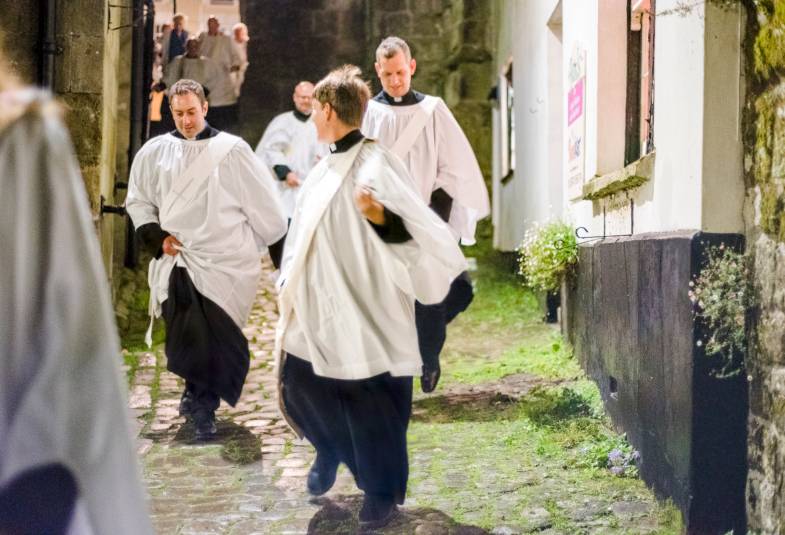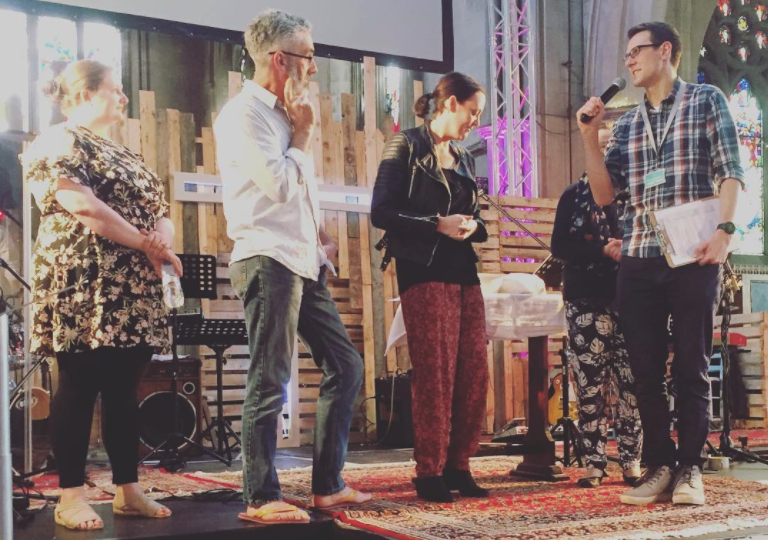
Training will help you deepen your knowledge of Christian faith. It will give you skills to be a minister. It will ensure you are developing habits of prayer that will sustain you in ministry.
Find out more about the different pathways below:
An immersive community: residential pathways
Training on a residential pathway typically involves living in college. You will be part of a close community, learning, growing, praying, and worshipping together.
We recognise a number of different residential colleges for theology training, each with its own distinct history, character, and flavour. We would encourage you to find out more using the links below.
Learning by doing: full-time non-residential pathways
Training on a non-residential course (sometime referred to as context based) typically involves a mixture of classes and placement. You will train in a parish alongside your studies, learning and developing through practical experience.
The balance between the learning through study and learning through practical engagement will vary between different courses.
We recognise a number of different non-residential courses for theology training, in principle allowing you to train anywhere. We would encourage you to find out more about the different courses on offer using the links below.
- Church Mission Society, Oxford
- Eastern Region Ministry Course, Cambridge
- Emmanuel Theological College, North West
- Cuddesdon, Oxfordshire
- Sarum College, Salisbury
- St. Augustine’s College, Southwark (London) and Kent
- St. Hild College, Yorkshire
- St. Mellitus College, London, South West, and East Midlands
- Trinity College, Bristol
- Wycliffe Hall, Oxford
- Cranmer Hall, Durham
Studying whilst working: part time pathways
Training on a regional part-time course enables you to continue working in paid employment alongside your studies.
We recognise a number of different regional part-time courses for theology training, in principle allowing you to train anywhere. We would encourage you to find out more about colleges offering these courses using the links below.
- Eastern Region Ministry Course, Cambridge
- Emmanuel Theological College, North West
- Lincoln School of Theology and Ministry, Lincoln
- Lindisfarne College of Theology, North Shields
- Local Ministry Programme, Guildford
- The Queen's Foundation, Birmingham
- Cuddesdon, Oxfordshire
- Sarum College, Salisbury
- South West Ministry Training Course, Exeter
- St. Augustine’s College, Southwark (London) and Kent
- St. Hild College, Yorkshire
- St. Mellitus College, London, South West, and East Midlands
- Trinity College, Bristol
- Winchester School of Mission
Research degrees for potential theological educators
We need ministers with a range of skills and abilities, including those who will be the theological educators of the future.
If you intend to pursue a research degree, including at doctoral level, the first step is to talk to your diocese. We will work with your diocese to approve a pathway and disburse a budget for your study.
Testimony: Matt Rogers
Matt knew that he was called to do more. Once he got involved the opportunities to minister only grew.
"Then Jesus said to Simon, 'Don’t be afraid; from now on you will fish for people.' So they pulled their boats up on shore, left everything and followed him."
Luke 5: 10-11
- Bishop
-
A senior ordained person who has oversight of clergy and lay people in a diocese.
- Theology
-
Study exploring the meaning of God's word
- Parish
-
The smallest pastoral area within the Church of England. A parish usually has one main church building.
- Diocese
-
Main administrative and pastoral area in the Church of England – often roughly coincides with local county boundaries. There are 42 dioceses.
